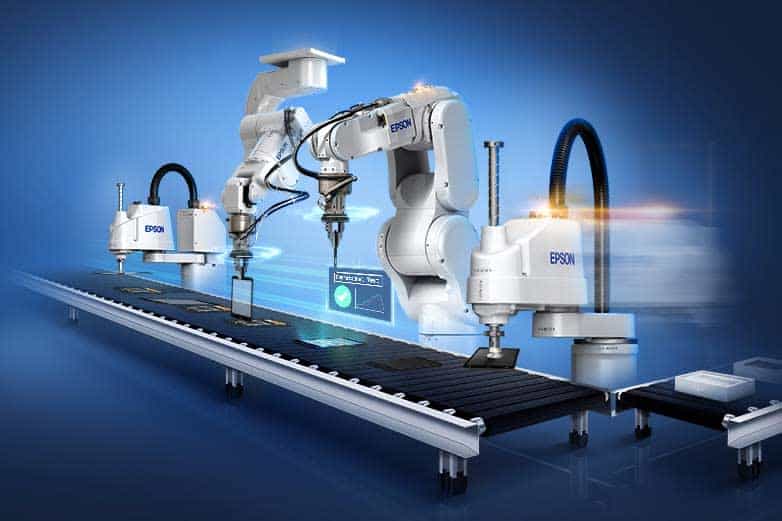The world has changed since the global pandemic, giving industry leaders time to think about how they should prepare for the future. For many years companies have relied on out-sourcing manufacturing production where the cost of labor has been traditionally lower.
Over the past 30 years manufacturing’s contribution to the EU’s GDP has plummeted to just 15%. That is a 6% decline over a relatively short period of time, blamed partly on competition from developing economies.
Now that we have seen how an unexpected event can disrupt global supply chains, countries within Europe are looking at re-shoring their manufacturing processes which in turn will curtail the decline in GDP and provide locally sourced goods which is also better for the environment due to lower transport requirements.
Questions are being asked as to the extent to which synergy between humans and machines could hold the key to triggering a new manufacturing boom in Europe. Fortunately, we have found that the solutions are already here with the advancements in robotic automation. In recent years the return on investment by having robots taking care of the manufacturing is now much more competitive than out-sourcing. With the lower prices of robots now, it has become more economically viable to bring the manufacturing closer to home.
The trend for robot-human collaborations on factory floors has been growing for some time, thanks in no small part to the latest innovations in human-machine interfaces.
Advances in HMI Applications
Collaborations between human workers and robots only work when the interface is as natural as possible. Touch screens, voice activation, and augmented reality are all becoming staple technologies in manufacturing environments across Europe.
Human Machine Interface (HMI) applications have slowly become more standardised over the past decade, boosting familiarity and reducing the severity of the learning curve. A new generation of agile, sensitive and easy to program robots are making its mark on even the most complex factory production processes.
As a result, goods of superior quality are being brought to the market faster than ever before and by means of more cost-effective production processes. Along with improvements to efficiency, worker-machine collaborations are reducing the risk of human error; improving health and safety in industrial settings and boosting the bottom lines of countless businesses.
Increasing Customer Expectations
The growing tendency for customers to seek individualised products also underlines the importance of sophisticated robotic technology combined seamlessly with human input. As an example, a consumer buying a car may wish to customise a wide variety of features online, before completing the payment process and awaiting delivery.
The use of flexible and easily programmable robots combined with an advanced Human Machine Interface can significantly streamline and simplify the process, perhaps entirely negating the need for multiple consultations and conversations to take place across countless suppliers, along with the usual manual process intervention required to manufacture the car.
The automotive industry has always relied on the latest robotic technology, but the most advanced HMI applications are already pushing boundaries with regard to what was once considered impossible.
Greater Autonomy and Robotic Precision
HMI applications have become the driving force behind the production of high precision, high speed autonomous robots which are able to maintain productivity on a constant basis while maintaining consistent quality levels.
Epson in particular is leading the charge for cutting-edge robotic technology. Ranging from the entry level SCARA T3-Series through to higher-end LS-Series and G-Series models, Epson’s robots have become a staple in manufacturing and industrial settings where speed, precision and consistency are critical.
Examples of which include automating laboratory processes, packing medications, manufacturing medical equipment, assembling automotive components and more.
System Devices UK Ltd is the only UK authorised Epson Scara robots distributor with more than three decades of experience, helping manufacturers in the UK by providing cutting edge automation technology and engineering innovation.
